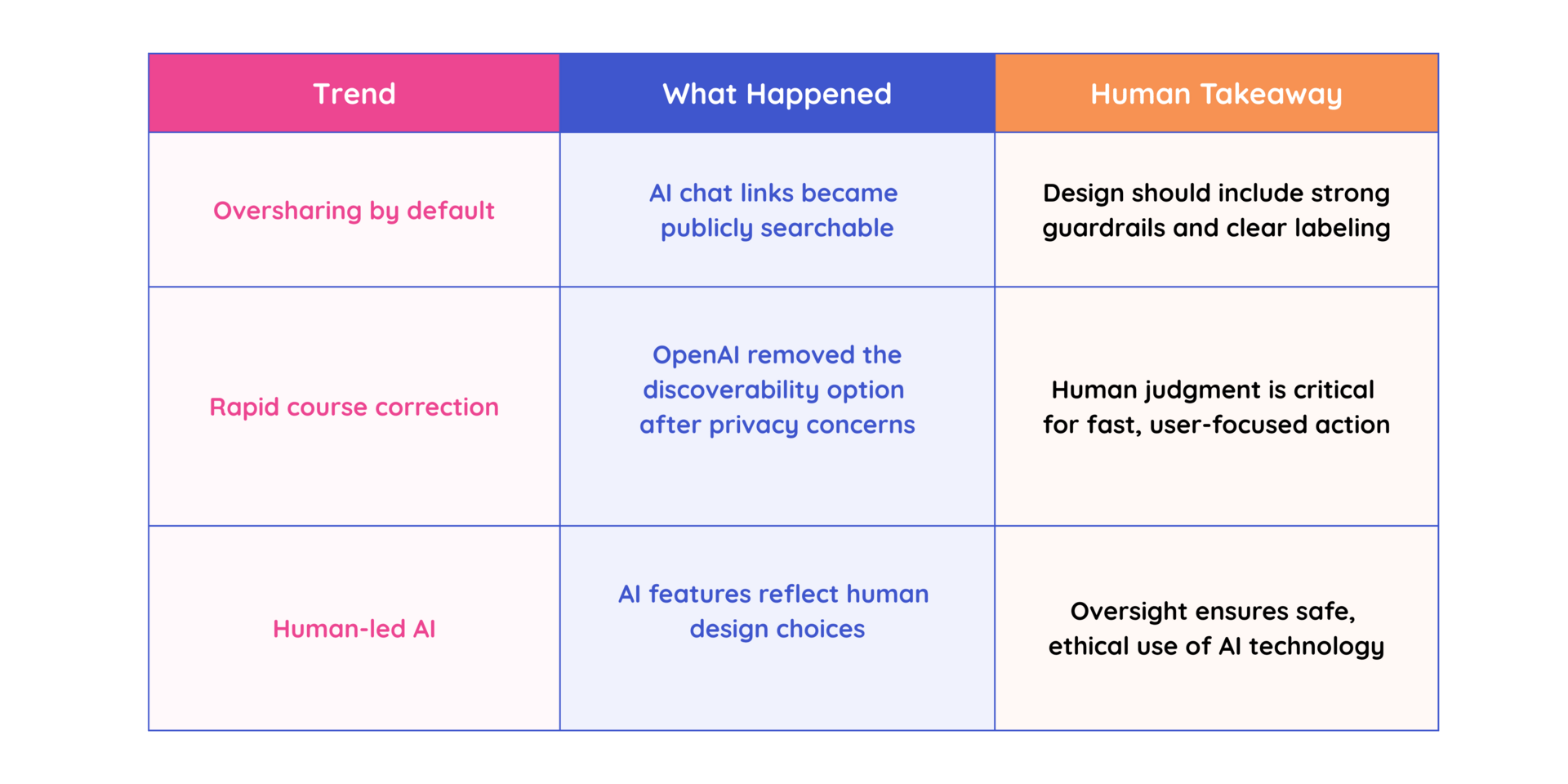OpenAI Reverses Privacy-Risk Experiment: Shared ChatGPT Conversations Are No Longer Searchable
OpenAI recently reversed a move that allowed certain ChatGPT conversations to appear in Google Search results, a shift prompted by growing privacy concerns. This incident highlights an important truth: even the most advanced AI systems require thoughtful, human-centered design and oversight.
Fast Company and others discovered that over 4,500 such chats had been indexed by Google, including conversations containing sensitive information like mental health disclosures, workplace details, and personal confessions.
OpenAI’s Swift Backtrack
Within hours of the public reports, OpenAI confirmed they would remove the discoverability option entirely and work with search engines to delete already indexed content. Dane Stuckey, OpenAI’s Chief Information Security Officer, explained that the feature "introduced too many opportunities for folks to accidentally share things they didn't intend to."
Why This Matters and The Human Role in AI
User trust depends on clear design. Small print and buried settings can lead to serious unintended exposure. Human-centered design requires clarity and safeguards.
AI reflects human decisions. Even well-intended features can create privacy risks if interface design and defaults are not considered from a human perspective.
Privacy protection requires active oversight. AI systems do not automatically safeguard sensitive data. It is human judgment that ensures safety through interface clarity, default settings, and risk controls.
Key Takeaways for Brands and Teams
Review AI product settings and default configurations. Sensitive data should never be public by default.
Build transparency into user flows. Clear labels, confirmation prompts, and real-time warnings help prevent mistakes.
Maintain continuous human oversight. During beta testing or feature rollouts, plan for human review and the ability to reverse changes quickly.
ScaledOn’s Approach: Human-Led AI Done Responsibly
At ScaledOn, we believe AI should enhance human decision-making, not replace it. While systems like ChatGPT can speed up ideation and content creation, it is human expertise in UX, privacy, and strategy that protects brand reputation and user trust.
Summary Table: What Changed and Why It Matters



